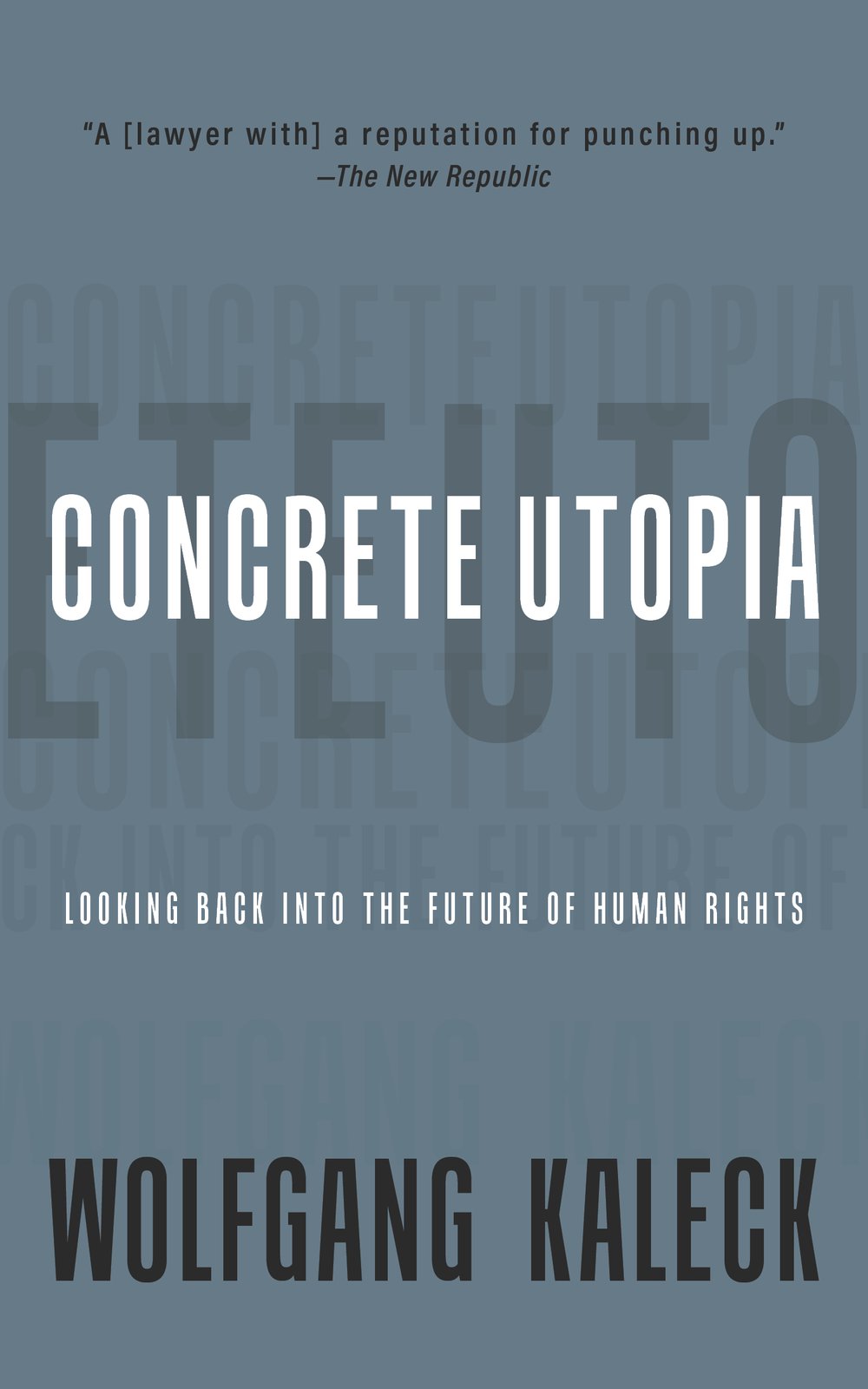The Concrete Utopia
Looking Backward into the Future of Human Rights

Concrete Utopia conceptualizes the human rights project of the last two and a half centuries as a “backward-looking” endeavor, which, in order to move forward, must return to the utopian roots of its foundational documents.
Human rights advance by judging the ills of the present world from a standpoint in the future where they might no longer exist—a fundamentally utopian gesture. This peculiar character of human rights makes them continually ripe for reinvention and for responding to changing world circumstances. Looking at topics such as the Auschwitz trials in Frankfurt in the mid-1960s, public outrage to the Vietnam War, the US civil rights movement and the founding of Amnesty International in 1961, this book surveys the history of human rights and how they have been reconceived at different points in time. It closes by sketching the way they may be re-envisioned for new struggles in the 21st century.
At a time when the human rights project has endured criticism for being toothless or even for providing a pretext for military invasions, Kaleck argues that the current global crises, from inequality, to ecological collapse and the “age of pandemics,” can be countered by reinventing human rights work through feminist, decolonial and ecological interventions.

Wolfgang Kaleck is a lawyer and author who founded the European Center for Constitutional and Human Rights (ECCHR) in Berlin in 2007 and is now its Secretary General. He has published several books, including Law versus Power (2018), which has been translated into four languages. Kaleck became known to a wider public through his work representing the whistleblower Edward Snowden. In 2020/22, Kaleck was a visiting lecturer at the Sorensen Center for International Peace and Justice at CUNY School of Law in New York. In recognition of his human rights work, he has received several awards, including the Bassiouni Justice Award and the Hermann Kesten Prize from the PEN Center Germany.
